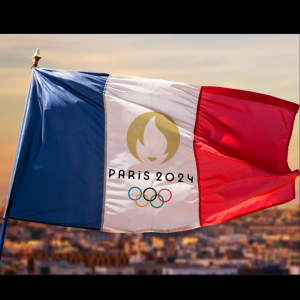
With the start of the 2024 Olympic Games in Paris came renewed discussion about Puerto Rico’s participation at the Olympics. This is evidenced by a surge in Google searches questioning if the U.S. territory has its own Olympic team (13 News Now). Since 1948, Puerto Rico has competed as an independent entity with its own national Olympic committee distinct from the United States, allowing its athletes to represent their island on the world stage.
This proud history of Olympic competition highlights Puerto Rico’s unique cultural and national identity. This pride is not confined to the island; it is felt throughout the Puerto Rican diaspora, especially in places like Florida. After Hurricane Maria devastated the island in 2017 many Puerto Ricans were forced to relocate with a significant number settling in the Sunshine State, particularly in Central Florida.
Each time Puerto Rico participates in the Olympics it often sparks debates about identity and who gets to call themselves Puerto Rican (MSNBC). It raises questions about national identity and political status. This distinction highlights the complexity of Puerto Rico’s relationship with the United States as it functions independently in sports but remains politically connected.
Questions arise about whether Puerto Ricans living allá afuera (“out there”) should be considered as being as Puerto Rican as those residing on the island. This includes discussions on cultural identity, connection to the island, and eligibility to represent Puerto Rico in international events. Since Puerto Ricans are U.S. citizens issues of dual identity and nationality come into play, further complicating the conversation about who truly represents Puerto Rico.
These discussions are brought to the forefront by the international platform of the Olympics. One prominent example is Jasmine Camacho-Quinn, gold medalist in the 100-meter hurdles at the 2020 Tokyo Olympics, winning Puerto Rico’s second gold medal in the island’s history (Dartmouth).
Jasmine represented Puerto Rico at the Games despite having been born and raised in South Carolina. She elected to compete for the island based on her mother’s status as Puerto Rican, and herself identifies as Puerto Rican (Dartmouth). Jasmine once again competed in the Women’s 100-meter hurdles at the 2024 Paris Olympics, leaving this time with a bronze medal. She finished behind Cyrena Samba-Mayela of France, who claimed silver, and Masai Russell of Team USA, who won gold. This marked the first of two medals for the island at the 2024 Paris Olympics, where Sebastian Rivera, a Stateside Puerto Rican wrestler, also won bronze.
The recent Puerto Rico vs. USA men’s basketball game marked the first time in twenty years that the two teams had faced off, with Puerto Rico’s team featuring a mix of island-born players and stateside Puerto Ricans. Team USA secured a 104-83 victory, but the game stirred complex emotions among Puerto Ricans, especially for those who fervently support statehood (MSNBC). Governor Pedro Pierluisi and other statehood advocates cheered on Puerto Rico’s Olympic team even as they push for a political status that could potentially end the island’s proud sports independence (MSNBC).
Despite the complex and conflicting emotions surrounding the issue of identity and political status, one thing remains clear: a Puerto Rican Olympic win is a source of immense pride. It unites Puerto Ricans and brings positive international attention to the island. A win showcases Puerto Rican talent, resilience, and spirit to the world. In the end, regardless of the political debates, the joy of seeing Puerto Rico’s flag raised and its athletes celebrated is a victory.
References
MSNBC: https://www.msnbc.com/opinion/msnbc-opinion/us-puerto-rico-basketball-statehood-rcna164491